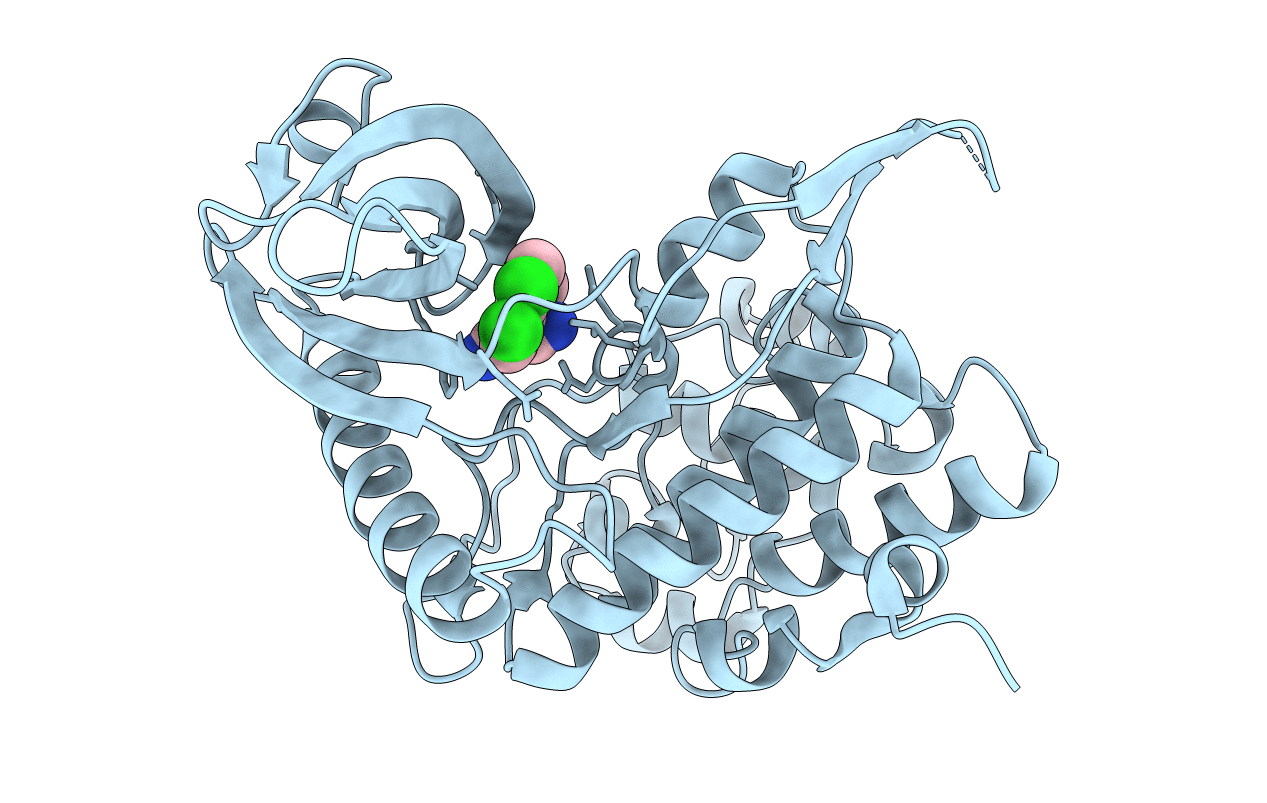
Deposition Date
2020-01-12
Release Date
2020-02-05
Last Version Date
2024-10-09
Entry Detail
PDB ID:
6TW2
Keywords:
Title:
Re-refined crystal structure of di-phosphorylated human CLK1 in complex with a novel substituted indole inhibitor
Biological Source:
Source Organism(s):
Homo sapiens (Taxon ID: 9606)
Expression System(s):
Method Details:
Experimental Method:
Resolution:
1.80 Å
R-Value Free:
0.22
R-Value Work:
0.18
R-Value Observed:
0.18
Space Group:
C 1 2 1


